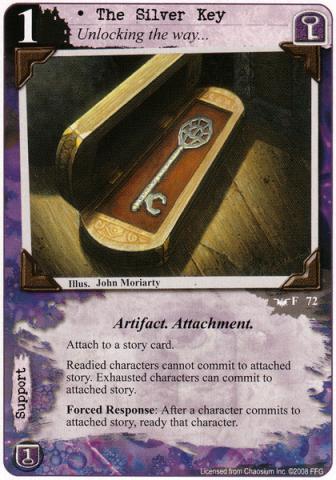Hello,
I just started collecting CoC, and while learning this game, some rule-questions came up. Any help on them is appreciated!
1) I'm thinking about when to discard event cards (FAQ 2.12). When does an action count as "resolved"? When it is executed to the last bit? This would mean that the "Call for Backup"'s Action is only resolved at the end of the phase I played it… by the FAQ, this should mean that the event card is discarded at the end of the phase that it has been played in. Correct? Seems a bit strange to me…
2) When a character cannot uncommit (e.g. Obsessive Detective), but would be destroyed by a game effect (e.g. because of a wound dealt in a combat struggle), it's obvious that the character gets destroyed (and therefore automatically uncommitted). But card text generally supersedes rule text, and the word "cannot" is an absolute… What's the proper reasoning that the Obsessive Detective gets uncommitted and goes into the discard pile despite of the word "cannot"?
3) Prof. Albert Wilmarth (Folklore Expert): Since this is a passive ability and is active all the time that character is committed, when does the player choose the struggle which doesn't resolve? (And why?) Could be important if "The Doorway" is in play, or if I'm afraid of an opponent having a "Shotgun Blast" or something like that in his hand… Do I have to decide the ommitted struggle at the moment Albert Wilmarth is committed, or may I wait just before the struggles start (the action windows are gone at this point), or may I even say "I will not omit the Terror struggle. After it has been resolved, I will tell you if I want to omit C, A or I struggle."?
4) The last question is about the timing scheme for actions in the FAQ in general. Several effects in it (which are not the action's effect itself, but e.g. costs for it) could lead to other possible responses/disrupts. Do they open a new timing scheme (like in programming, when a subroutine calls itself recursively)? Example: I have "G-AAMX" in play and my opponent "William Bain". I exhaust the G-AAMX (which is the cost for its Action, so the exhaustion should happen in step 1)e) of the timing scheme). May my opponent now trigger William Bain's effect, opening a new timing scheme like a subroutine, and my G-AAMX's action is put on hold (meaning he may manipulate his deck first); or may he trigger his response only in step 5) of the timing scheme for my G-AAMX's Action's cost, which means that my G-AAMX manipulates his deck first? I think the latter one is true, but I am not sure.
What would happen if William Bain's effect had been worded as a disrupt? Can costs be disrupted at all? Because costs are paid in 1)e), and disrupts may be triggered only later in step 2)…
Greetings,
Pete

